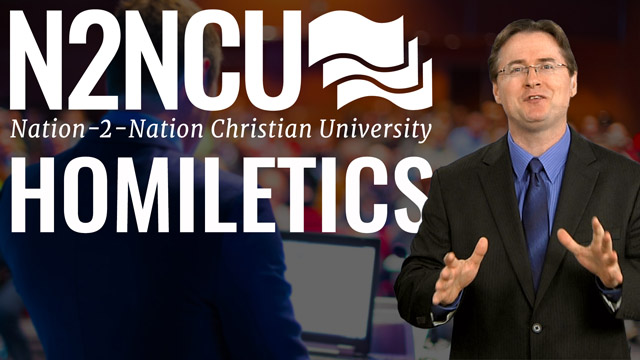
Homiletics - Preaching For Impact trains pastors in how to powerfully impact lives through their messages. In this course, Dr. Cliff provides essential tools for preparing and delivering messages that reach both the heart and mind, and result in changed behavior and changed lives. Each session provides clear, practical, step-by-step instruction in the skills that produce effective, dynamic messages. Some of the subjects covered include: Organizing and Writing a Dynamic Sermon; the Importance of Character and Anointing; the Effective Use of Illustrations; Choosing Relevant Topics and Passages; Keys to Powerful, Memorable Sermons; and Effective Altar Calls.
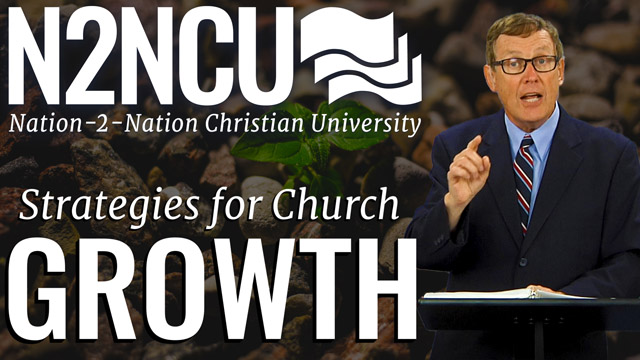
Church growth is rarely spontaneous. Instead, it usually happens in response to leaders who pursue growth through vision and strategic planning. In Strategies for Church Growth, Rev. David A. Macfarlane draws from decades of experience to present five fundamental church-growth strategies, as well as practical, tried-and-true methods for implementing them in any church. These strategies were at the core of success for the original first-century church, and are still essential for healthy, growing churches today.
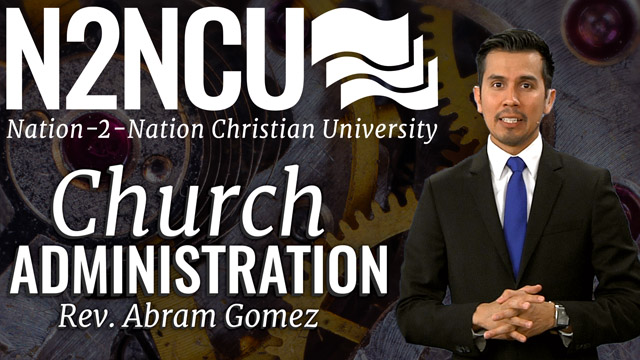
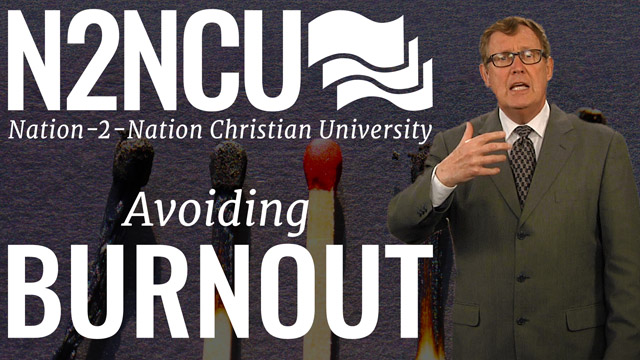
Anyone who enters ministry risks burnout. Pastors and church staff who are passionate about their ministry work long hours and often see the lines between their ministry and personal lives blurred. In this course, Re. David Arrol Macfarlane presents ten guidelines which will help avoid burnout. Based on Scripture and practical application, these guidelines will help everyone who is engaged in ministry to run the race to completion and to achieve the plans and purposes which God has for their lives.
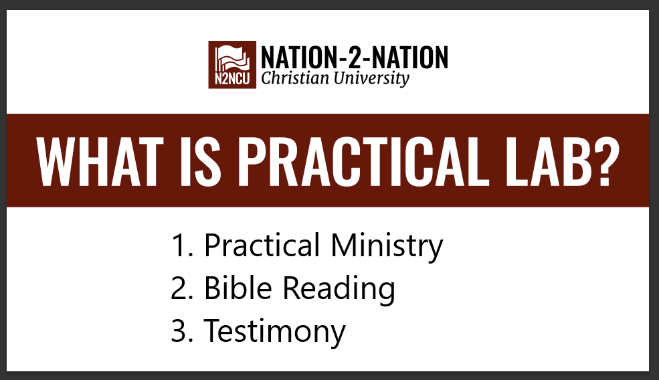
Practical Lab is designed to secure a strong foundation for
true Christian leadership. True Christian leadership consists of three things: Living what we learn (practical ministry), a knowledge of scripture
acquired by a disciplined bible reading/study habit and the ability to articulate your spiritual growth to others.
This course addresses the practical application of the leadership/ministry principles and tools that are the foundation of the Nation-2-Nation curriculum by getting the student to seek out and participate in a variety of ministry opportunities.
The Practical Ministry lab is an opportunity to do the real work of ministry throughout each semester. You will be responsible for engaging in church sanctioned ministry activities and submitting electronic reports of your activity back to N2NCU. Talk to your pastor or leadership to find out how you can help.
The Bible Reading lab will take the student through the entire New Testament and one quarter of the Old Testament for every three semesters completed. Upon completion of the bachelor program you will have read the New Testament four times and the Old Testament once. Your bible reading discipline will be well established by following the weekly bible reading schedule.
The Testimony section gives you, the student, a chance to put into words the changes that are taking place in you, your ministry, and your relationships. Your testimony also encourages others to seek growth in their own spiritual lives and reminds all of what God can do when you follow hard after Him.